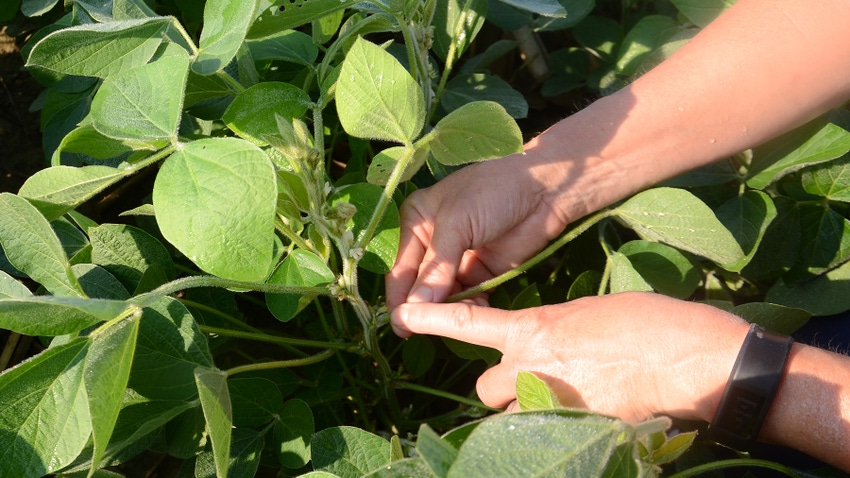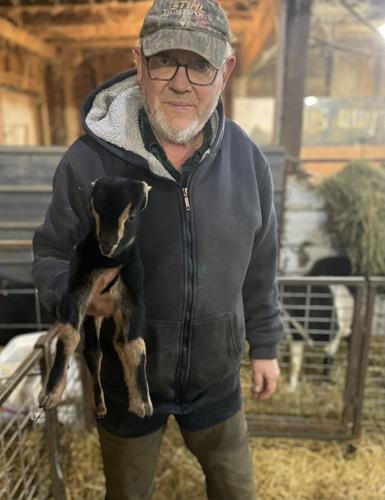No-Till Farmer editors encounter a variety of articles, social media posts, podcasts and videos that offer a unique look at the grower's world from the lofty digital realm. Here is our favorite content from the past week from across the web:
- Mistake #1 for Long-Time No-Tiller? ‘I Started on a Road Where Everyone Could See’
- What Does It Take to Grow 100-Bushel-Per-Acre Soybeans?
- No-Tiller Tackles Question of How Late Is Too Late to Plant Cereal Rye
- No-Till Helps South Dakota Farmer Stress Less in Wild Weather
- Ukrainian No-Tiller Stays Positive Amid War
Best of the Web This Week is brought to you by NACHURS.
NACHURS®️ is a liquid fertilizer brand that has revolutionized farming practices since 1946. NACHURS offers high quality precision-placed, seed-safe liquid starters and the latest technologies to maximize crop potential. The NACHURS sales and agronomy team are professionally trained to assist our dealer network with product positioning, agronomic advice and fertility recommendations.
Mistake #1 for Long-Time No-Tiller? ‘I Started on a Road Where Everyone Could See’
John Hickman of St. Joseph, Mo., started no-tilling in 1983, and he says right off the bat, he made a big mistake: “I started on a road where everyone could see,” he says in this video from MissStateExtension. “I had a lot of trouble with that drill. I had to stop and clean it out, and everyone was looking. They thought I was nuts.” Despite the rubber-necking, Hickman stuck with no-till and talks about its many benefits in the decades that followed.
What Does It Take to Grow 100-Bushel-Per-Acre Soybeans?
A team of Pioneer agronomists tackle the above question in this FarmProgress feature. “Weather plays a larger role…but there are pieces we can identify which seem to be important for higher yields,” says Matt Clover, Pioneer agronomy manager.

SCOUTING AND TESTING: Going after high yields requires top level management. These soybeans were scouted often, and tissue tests were pulled. They yielded around 80 bushels per acre. Photo: Tom J. Benchman
No-Tiller Tackles Question of How Late Is Too Late to Plant Cereal Rye
The no-tillers at JL Acres in northern Illinois planted cereal rye in early October, late November, early January and even in March over the last year. In their latest YouTube video, find out how planting date affects cereal rye growth and whether it’s worth it to plant cereal rye late in the winter.
No-Till Helps South Dakota Farmer Stress Less in Wild Weather
No-tiller Terry Ness farms 1,500 acres of oats and corn, and raises goats in Hughes County, S.D. This article from the Capital Journal illustrates how no-till helps him weather the storm of blizzards, high input prices and wet fields.

Hughes County farmer Terry Ness holds a kid, calling it "one of the cutest things you've ever seen". Photo: Shannon Marvel
Ukrainian No-Tiller Stays Positive Amid War
Ed Bourgeois perfectly captured the spirit of Ukrainian no-tiller Konstantin in this tweet during No-Till Farmer’s live Ask the Operator webinar last Friday. Konstantin joked that everyone would be expecting him to show up in a helmet because the country is at war, but most of the time, he has his farmer “hat” on. “When a lot of farmers from Europe and America ask how I’m doing, my main answer is still alive. When I wake up in the morning, I’m happy because our victory is one day closer than it was yesterday.” Watch the webinar replay to learn more about how you can help Konstantin and other Ukrainian farmers.
Farmers helping farmers. US Regenerative farmers working together with farmers from Ukraine. Thanks Loran @FLOLOfarms and @NoTillFarmr for this zoom.
— Ed Bourgeois (@EBourgeois) April 7, 2023
Even when they must wear a helmet of war in their fields, they say they must stay positive and keep smiling! pic.twitter.com/np7gQIClfK
Is there something you want to share in "This Week"? Send us an email.
NACHURS®️ is a liquid fertilizer brand that has revolutionized farming practices since 1946. NACHURS offers high quality precision-placed, seed-safe liquid starters and the latest technologies to maximize crop potential. The NACHURS sales and agronomy team are professionally trained to assist our dealer network with product positioning, agronomic advice and fertility recommendations.








Post a comment
Report Abusive Comment